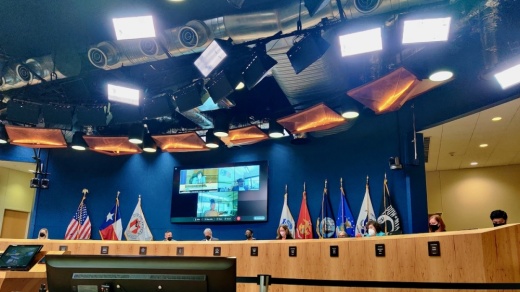The settlement vote represents a long-awaited step in council’s push to reform how such cases and victims are treated in the city. Several plaintiffs speaking at the January meeting also stated that, despite finally reaching a legal conclusion, the settlement and city's response was still too little and came too late.
“I had to devote six years of my life to finally feel the healing and closure I needed. I gave up my early 20s to do what you all were elected to do. ... My journey, and not anything you had to do with, comes full circle today,” Marina Garrett told council.
The two lawsuits laid out allegations of widespread bias against women and survivors who were “disbelieved, dismissed and denigrated” at APD for years, and whose cases often ended without resolution. Plaintiffs in the two cases said police routinely “re-traumatized” women by ridiculing them and insinuating they lied about assaults, forcing “invasive” exams on survivors and closing cases without notifying victims.
Previously, investigations have found that APD also mishandled such incidents through the backlog of rape test kits that accumulated for years, and the widespread misuse of “exceptional clearance” for sexual assault cases—closing them without making an arrest. That issue is the subject of an ongoing external audit into APD’s sexual assault investigations that is expected to wrap up in May.
Speaker Mary Ruth Reyes named herself as a plaintiff in one of the lawsuits, previously identified under the pseudonym Amy Smith, and spoke to her experience dealing with the city and drawn-out processes related to her case.
“The city of Austin failed me repeatedly, emotionally, systemically and traumatically," Reyes said. “It’s the lack of trust, the lack of care, the lack of commitment and accountability from those sworn to protect us surrounding the subject that contributes to that trauma."
After hearing testimony from several plaintiffs in attendance, most council members took turns expressing regret and frustration over the length of time it took to reach resolution and the neglect that cases and victims received in the city.
"No one should experience sexual assault and then have to spend years and years advocating to be believed, to be heard. We must fix the system that we have," Mayor Pro Tem Alison Alter said.
District 4 Council Member Greg Casar said, despite reaching an end to years of conversations with survivors and advocates related to the legal cases, he left the settlement vote feeling "permanently unsettled" over the city's role in the allegations. Casar had previously pointed to a settlement as his top priority before he leaves office this year, and said Jan. 27 he hopes it represents a shift away from the city's past neglect and dismissive treatment of victims.
Council’s 11-0 approval of the settlement includes $825,000 to be split between the 15 plaintiffs in both cases, $50,000 for their attorneys, and the city's issuance of a formal apology to victims. It also comes after Travis County approved a $580,000 settlement last June over the role of its district attorney's office in the cases.
“There is no excuse for that failure. ... Regardless of the details of the resolution of the city or the county, we can never truly right the harm that has been done to so many women in our community, but I also know that we can all move forward in a way that honors survivors guided by the mistakes of our past," District Attorney José Garza said at the January council meeting.
Ongoing improvement
The settlement passed with additional instruction from Alter related to continuing accountability measures and training at APD.
City Manager Spencer Cronk is now directed to report to council by March 15 on how proposals from the Police Executive Research Forum, or PERF—the group working on the external case audit—will be implemented. And once PERF completes its report this spring, Alter's direction will see Cronk return with a second implementation plan based on the group's final recommendations. Cronk will also report to council on how the city will fund and support new training at APD and its Sex Crimes Unit by April 1.
“We have taken important steps to improve how law enforcement handles sexual assault reporting, processing, investigations and prosecutions, and we are committed to continue improving,” Cronk said in a statement. “All survivors should feel safe, heard and have confidence in every step of the process.”
Since his confirmation as the leader of APD, Police Chief Joseph Chacon has also said that overall improvements to APD's work with sex crimes is a priority. Chacon laid out several updates on department collaborations and policy late last year, and reiterated APD's shift to a "victim-centered" approach after the suits were settled.
“The Austin Police Department is making meaningful changes to better protect and serve survivors of sexual assault,” Chacon said. “We are dedicated to prioritizing being victim-centered in our approach to investigations and victim services. This settlement highlights the methods we’ve updated to better serve victims of sexual assault.”





